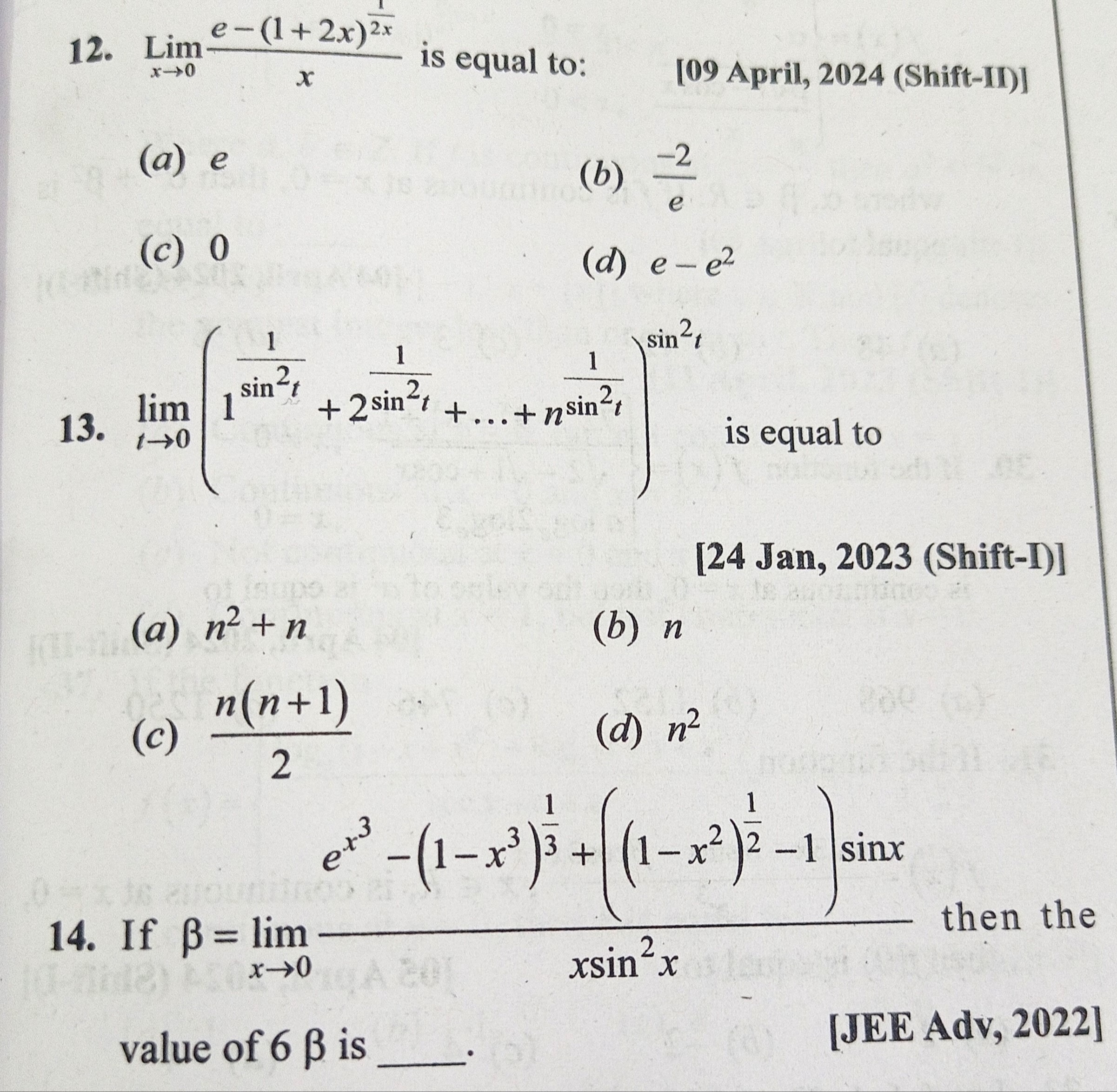Question
Question: $\lim_{x\to0} \frac{e^{-(1+2x)^{\frac{1}{2x}}}}{x}$ is equal to:...
limx→0xe−(1+2x)2x1 is equal to:

e
e−2
0
e−e2
The question as stated does not yield a finite answer among the options. There is likely a typo in the question.
Solution
Let the limit be L. We first evaluate the exponent term (1+2x)2x1. This is of the indeterminate form 1∞. Let y=(1+2x)2x1. Then lny=2x1ln(1+2x). Using the standard limit limu→0uln(1+u)=1, or by Taylor series expansion of ln(1+u)=u−2u2+…, we get: lny=2x1(2x−2(2x)2+…)=2x1(2x−2x2+…)=1−x+…. So, y=e1−x+…. As x→0, y→e1=e. The expression in the limit is xe−y. As x→0, y→e. So the numerator e−y→e−e. The limit becomes limx→0xe−e. Since e−e is a non-zero constant, and the denominator approaches 0, the limit tends to ±∞. This indicates that the question as stated might have a typo or the options are for a different question.
